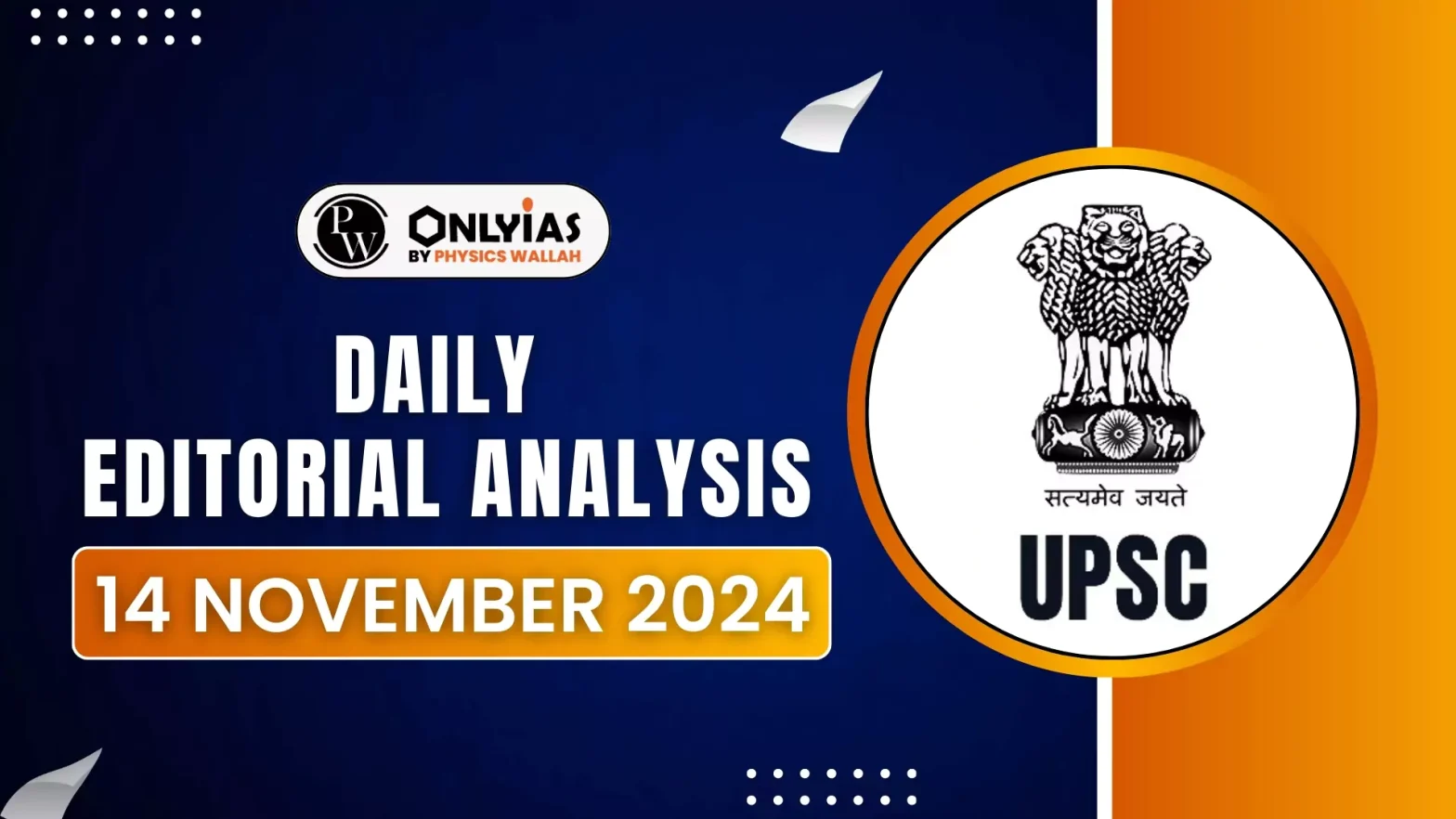There could be potential implications of delimitation in India, highlighting how it could disproportionately boost the political power of states with high Total Fertility Rates (TFR) and low economic contribution, while diminishing the influence of more developed, southern States.
Delimitation and Its History
- Article 82 of the Indian Constitution requires that the number of Lok Sabha seats per State be recalibrated after each Census by the Delimitation Commission, based on population.
- Last Delimitation Activity: Delimitation last occurred based on the 1971 Census.
- Suspension of Delimitation Process: The process was suspended for 25 years till 2001 by the Indira Gandhi government in 1976, and again for another 25 years by the A.B. Vajpayee government. This suspension will lapse by 2026 unless amended.
Enroll now for UPSC Online Classes
Total Fertility Rate (TFR) and Its Impact
- The Total Fertility Rate (TFR) estimates the average number of children a woman has during her reproductive years.
- TFR of States: Kerala, Tamil Nadu, and West Bengal (non-Hindi states) have a TFR below the replacement level (2.1) i.e within 1.6-1.8 range, while States like Bihar, Chhattisgarh, Madhya Pradesh, Rajasthan, and Uttar Pradesh (Hindi states) have a TFR of about 3.5.
- Impact: Delimitation could significantly reduce the number of Lok Sabha seats for states like Kerala, Tamil Nadu, and West Bengal.
- Conversely, it could increase seats for states such as Bihar, Chhattisgarh, Madhya Pradesh, and Rajasthan, potentially shifting political power in India.
- For Instance: If delimitation occurs, the share of seats in Parliament for the southern states would drop from 25 percent to 17 percent.
- Meanwhile, the number of seats for states in the Hindi-speaking region would rise from 40 percent to 60 percent.
Commonalities Among Indian States
- States are Ethno-Linguistic Homelands: India is a federation of multiple ethno-linguistic groups.
- Most Indian states are organised around language, and many are extensions of ethnic and linguistic homelands that have existed for centuries or even longer.
- This is why the Supreme Court of India refers to states as political units rather than just arbitrary administrative divisions.
- Commonalities due Colonial Struggle: Indian states share commonalities that stem from their colonial struggles, as many were formed or restructured during the fight against British rule.
- Contrasting View: The above opinion contrasts with the idea of India as a civilization with roots that predate British colonisation.
- India’s regions have been interconnected for thousands of years through shared traditions and history.
- Hinduism, often seen as a cultural thread, unites India’s diverse identities and reflects an enduring unity that existed well before colonial rule.
- While colonial struggles helped shape modern states, India’s deep-seated unity and diversity long precede British intervention.
|
Disparities in Resource Allocation
- States like Karnataka, Maharashtra, and Tamil Nadu contribute a lot in taxes but only get back about 30 percent of that money.
- On the other hand, Bihar and Uttar Pradesh get back much more than they contribute—between 250 percent and 350 percent of what they pay in taxes.
- The 16th Finance Commission’s decision to use the 2011 Census for devolving funds will exacerbate this imbalance, further discriminating against developed southern States.
Changing Ethno-Linguistic Demography
- The population of languages such as Bengali, Tamil, and Telugu has decreased over the years, while Hindi’s proportion has significantly increased.
- This demographic shift challenges the long-established federal structure and the balance of power among linguistic states.
Stakeholdership Index and Delimitation’s Impact
- Stakeholdership Index: The Stakeholdership Index represents a State’s proportion of Lok Sabha seats relative to the total number of seats.
- Increase and Decrease in Representation: Delimitation would increase the representation of Hindi heartland States while reducing the representation of non-Hindi States like Kerala and Tamil Nadu.
- This shift could skew Indian democracy in favour of Hindi States, diminishing the voice of other regions in Union affairs.
- A Penalty For Reducing Population?: This situation can feel like a penalty for states which are actively working to control their population growth.
- Consequences: The principle of “no taxation without representation,” which played a central role in the American Revolution, could find a parallel in India, where states contributing the most to the nation’s wealth would have the least say in how it is spent.
- Countering view: In a federal system like India’s, the allocation of resources and political representation is based on collective national interests, and not merely proportional to a state’s economic contribution.
Check Out UPSC NCERT Textbooks From PW Store
Way Forward (Solutions)
- Extend the Freeze on Delimitation: One solution could be to follow the precedents set by Indira Gandhi and Atal Bihari Vajpayee, extending the freeze on delimitation for another 25 years to allow the political dynamics to stabilise.
- Permanent Freeze: A permanent freeze on seat redistribution that could not be changed.
- Federal Reform: Proceeding with delimitation as planned, but also introducing a new federal agreement.
- This would involve abolishing the Concurrent List and expanding the State List, giving residual powers back to the states while retaining defence, external affairs and currency to the Centre.
- Increase Seats Without Redistribution: An alternative would be to preserve the current seat distribution but increase the number of seats in each state to account for population changes, ensuring that states with higher populations are not disproportionately disadvantaged.
Conclusion
India is a unique experiment in governance, defined by its diversity rather than a single dominant ethnicity or language. Unlike mono-linguistic nations like Bangladesh or Thailand, India resembles a tapestry of languages, ethnicities, and cultures—much like Africa or Europe. Its firm political unity, shaped by a collective struggle for independence, allows it to present a unified voice to the world. This pluralism is among the grandest social experiments in modern history, and preserving it requires resisting majoritarianism and partisanship, for which history will judge us.
![]() 14 Nov 2024
14 Nov 2024
